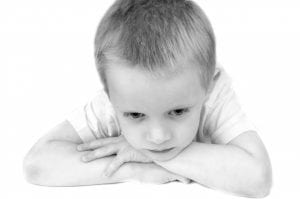This article will give you anger management ideas along with some techniques for kids.
At this age, kids are still learning to express their emotions in different ways such as anger.
Some may do so in ways that are a little inappropriate.
One such example is not being able to control their rage when they feel upset.

At a young age, you must teach children strategy management to control their rage.
Here are a few ways you can do so.
Anger Management As A Parent And To The Kids
First things first.
We understand you may be frustrated at a child who can’t seem to control their emotions, but you have to remember that you need to set a good example.
If you yell and scream back at the kid, you’re showing them that anger is the solution. If you feel your anger rising, release it in private and come back with a cool head.
It Is Normal To Express Emotions
Anger is an emotion that does get a bad rap. If you feel frustrated or wronged or feel angry, it is okay. The problem is how you express it. Tell your kid that anger is okay, but how they express it may not be. If your child has angry outbursts, ask them to express why and how they feel. Healthy coping skills will provide your child with an avenue to express uncomfortable feelings and cope with whatever heavy they are feeling.
Anger can motivate and help us to get to know things. If you feel wronged, you want to figure out a way to make it right. However, an eye for an eye is usually not the best way. Instead, using your words and trying to be diplomatic is the solution. You can express anger through words without yelling, too. Some people are the scariest when they are expressing their emotions in a calm voice. You can also teach them to use the anger thermometer so they can be aware when they are feeling angry. That way, you can help use the proper anger management skills and other skills that can be used to control anger.
Tell them that yelling, hitting, or throwing temper tantrums is not the solution. Instead, they should talk to you or someone they trust.

Give Them A Safe Space
A child feeling angry in public and yelling probably isn’t in a good mood. However, a child expressing their emotions in the comfort of their room isn’t a bad idea. A kid throwing their toys and breaking them isn’t good, but a child who rips a piece of paper to express their emotions can be better.
You must give your child a nice, safe location to express their feelings. If you see your child growing angry, perhaps you can be able to help them express it in that way.
Let Kids Know: Expressing Anger Is Okay
Let’s keep focusing on the idea that your child shouldn’t be afraid to express their negative emotions. Often, we want our children to be seen and not heard, and dismiss how they feel. What may irritate them will keep building up until it explodes.
Allow your child to express their own emotions in a way that allows them to get something off their chest, that’s a good thing. Don’t have your kid yell or scream, but do have them talk about how they are feeling and how they can solve the problem. Teach kids even at a young age so they know how to properly express their emotions.
Say a kid at school stole your child’s ball. Your child should express that anger by telling an adult, or explaining why stealing is wrong. They shouldn’t hit the other kid or shout at them. This just makes the problem a whole lot worse.

Identifying Triggers With Aggressive Behavior And Temper Tantrums
It’s always important to find triggers for a child’s anger. Sometimes, a child may have an outburst, but there may be underlying factors to it. For example, maybe a certain phrase or event makes your child angrier than usual.
Check how your child responds to a situation. It’s important to find triggers and try avoiding them, or teaching your child strategies to cope with their anger and emotions.
Teach Children Discipline
It’s important to have discipline when your child expresses anger. Again, don’t be angry at your child. Yelling at your child or using physical force as punishment just isn’t going to set an example. However, grounding a child, making them apologize to the kid they got angry at, or punishing them can help set an example.
You may not even treat the punishment as such. For example, if your child takes a time out, tell them that this is a time to cool down and figure out how to express their anger in a better way. Perhaps give them a stress ball while you’re in a time-out.
Also, don’t forget to reward good behavior. Positive reinforcement should be another thing you strive for. Give your child a treat or praise them when they manage to control their anger and express it in a way that is much less toxic.
Physical Activities For Younger Children
If your child wants to express their emotions healthily, try getting them into physical activity. At around 5, your child can participate in tee ball or another sport for a little one. Exercise helps your child get out their emotions in a healthy way, and it can help your child improve their mood too. The dopamine rush feels so good and it can calm down your kid. Don’t be afraid to try it, especially if your child isn’t getting enough exercise.

Don’t Feel Afraid To Seek Anger Help
Sometimes, your child’s rage may be a sign of another underlying issue. Some children have developmental conditions that make them angrier and harder to control. On the other hand, some children just have anger management issues, but you may not be teaching them how to manage their emotions in the right way.
Seeking the help of a counselor or a therapist can be the solution. Speak to one and see what they can do for you. Child counselors can talk to young children and get down on their level. Usually, you don’t even need medication. Some cognitive behavioral therapy techniques may be able to help. We understand that helping a child calm down can be challenging especially since they do not have the same level of thinking as adults do. Kids may have angry feelings but never recognize rage until they are an adult. So when a child throws a tantrum, just be patient.
Moreover, you should be aware of your child especially when it comes to big feelings. You can have a parent coach to guide you with this so you can learn to implement time outs, take deep breaths, coping skills against frustration, and more. Note that anger is a normal emotion among kids. When they do not get what they want, they will throw tantrums at you. But as parents, all you can do is encourage your child to focus on being more assertive instead of angry, so they can express and label feelings verbally.
Best 5 Year Old Anger Management Tips And Techniques
Anger is an emotion that isn’t inherently bad, but many kids don’t know how to express it healthily. To be fair, some adults don’t know how to, either. But by teaching them healthy anger management strategies, your kid won’t be one of them.
Frequently Asked Questions:
What Is The Cause Of Child’s Anger And Rage?
Your kid may have rage and emotional problems due to difficulty expressing emotions. In managing anger in young kids, especially those around 5 years old, it’s crucial to understand that kids struggle with impulse control. Recognizing the signs of angry behavior in a child’s behavior is the first step. Children develop different ways of expressing emotions, and angry kids may not yet have the communication skills needed to express themselves effectively. Implementing anger management tips and techniques can guide children to recognize anger and manage their anger more effectively.
Teaching self-control and providing a safe place for them to express themselves can prevent disruptive behaviors from escalating. It’s also important for older children to learn how to stay calm and healthily deal with emotions. Without proper guidance and support, issues with anger management left unchanged can impact a child’s entire life. Talking, explaining, and helping teach positive behavior is key in helping a child work through their emotions. Support from adults can turn a struggling situation into an opportunity for growth and learning.
How Can I Help My Child Overcome Rage?
You can help your child overcome rage and emotional problems by teaching healthy ways to cope and communicate. To assist a child in overcoming rage, it is crucial to foster an environment where they can learn effective coping mechanisms. When children learn to articulate their feelings, they gain a better understanding of what triggers their anger. Recognizing the root causes of hurt and aggression enables caregivers to explain appropriate ways to manage intense emotions, thereby guiding the child toward healthier responses.
How Can I Help My Kid Control His Emotions?
Help your kid control emotions through communication and coping strategies. To help your child control his emotions, especially if he’s a younger child or an aggressive child, consider using the best 5-year-old anger management tips and techniques from only high-quality sources, including peer-reviewed studies, to teach him how to express himself calmly and respectfully around other children and young people.
What Activities Reduce Rage?
Activities like physical exercise and sports can reduce rage in children, these activities can prevent them throw things. Activities like deep breathing, drawing, or playing with clay can reduce rage in younger children, as they learn to express emotions positively, and for further help, exploring age-appropriate anger management tips and techniques designed for 5-year-olds can be beneficial, it should be content-accurate and involving family support.
What to Say to Calm A Mad Child?
Calm an angry child by using a soothing and empathetic tone.
How Do You Punish A Kid Tantrum?
Address kid’s tantrums with time-outs or loss of privileges.
How Does A Mad Mother Affect a Child?
An angry mother can negatively impact a child’s emotional development and behavior.
What Makes a Child Develop Aggressive Behavior?
Aggressive behavior in children can develop due to various factors and reasons, including environment and genetics.
How Do I Know If My Child Has Rage Issues?
Look for signs of frequent, intense anger as potential indicators of anger issues in your child.
What Are the 3 Types of Anger?
The 3 types of anger are passive, assertive, and aggressive.
Is It Normal for Kids to Have Anger Issues?
It’s somewhat normal for a kid to experience anger issues as they learn to manage emotions and feelings.
How Do I Stop My Kid from Being Aggressive?
Stop your kid from being aggressive by teaching alternative ways to express frustration.
How Do I Talk to My Kid About Anger?
Talk to your kid about anger by using age-appropriate language and empathy.
What Is Normal Behavior For A Young Kid?
Normal behavior includes curiosity, independence, and occasional tantrums.
Should You Ignore a Child Hitting?
It’s important not to ignore a child hitting; address the behavior with guidance and consequences.
Other Resources On Anger Problems In Kids And Teenagers
Last Updated on April 13, 2023 by Raymond Sy Tamco
DISCLAIMER (IMPORTANT): This information (including all text, images, audio, or other formats on FamilyHype.com) is not intended to be a substitute for informed professional advice, diagnosis, endorsement or treatment. You should not take any action or avoid taking action without consulting a qualified professional. Always seek the advice of your physician or other qualified health provider with any questions about medical conditions. Do not disregard professional medical advice or delay seeking advice or treatment because of something you have read here a FamilyHype.com.